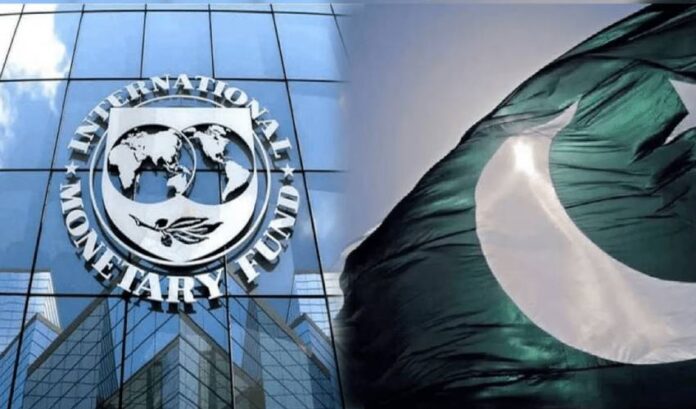ISLAMABAD: The International Monetary Fund (IMF) has revised its economic growth forecast for Pakistan to 3.2%, while also projecting a decline in inflation to single digits. This announcement comes with a warning from the IMF executive board to pursue growth targets responsibly to maintain debt sustainability.
In a statement following the approval of a $7 billion loan package, IMF Deputy Managing Director Kenji Okamura noted improvements in Pakistan’s economic landscape, highlighting a return to growth, doubled reserves over the past year, and a marked decrease in inflation. However, he cautioned that significant structural challenges remain, necessitating continued efforts to bolster Pakistan’s economic resilience.
The IMF’s recent Article IV consultation culminated in the approval of a 37-month Extended Arrangement, with the first tranche of $1.02 billion disbursed on Friday. The IMF’s growth projection surpasses that of the Asian Development Bank (ADB), while the Pakistani government has set a slightly higher target of 3.5% for this fiscal year.
Additionally, the IMF expects average inflation to decrease to 9.5% by the end of the fiscal year, significantly lower than the government’s target of 12% and a notable reduction from the IMF’s previous forecast of 15%. This drop provides the State Bank of Pakistan with the potential to lower its current policy rate of 17.5%.
Despite these positive developments, IMF directors have urged caution, emphasizing that ambitious growth projections must not compromise debt sustainability. The IMF anticipates an increase in the debt-to-GDP ratio from 69.2% to 71.4% this fiscal year, even as it sets a primary budget surplus target of 2% of GDP.
While the executive board welcomed progress toward a fairer tax system, it stressed the importance of broadening the tax base and improving tax administration for additional revenue mobilization. The board acknowledged Pakistan’s strides in policymaking under the standby arrangement, which has contributed to renewed economic stability.
The IMF forecasts that gross official foreign exchange reserves will rise from $9.4 billion to $12.8 billion by June of next year, although this amount remains below the minimum requirement to cover three months of imports. The organization underscored the importance of allowing the exchange rate to act as a buffer for competitiveness and reserve rebuilding.
The IMF also reiterated the need for Pakistan to shift away from a state-led growth model, emphasizing improvements in the business environment and the necessity for free competition to enhance living standards.
Okamura outlined key reform priorities, including advancing the State-Owned Enterprise (SOE) reform agenda, addressing distortive incentives, and enhancing governance and anti-corruption efforts. He also called for energy sector reforms to ensure long-term viability and reduce costs.
Overall, the IMF’s new program aims to restore policymaking credibility and ensure macroeconomic sustainability through consistent implementation of sound policies and tax base expansion.




